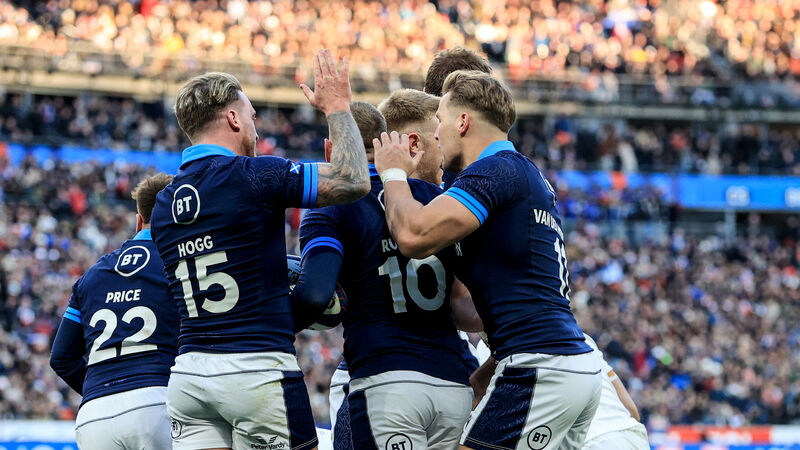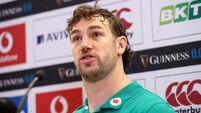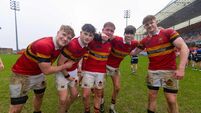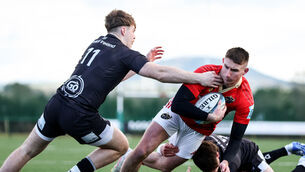Peter Jackson: Picking up the tab for an Irish Grand Slam

Scotland’s Finn Russell celebrates scoring their third try with Duhan van der Merwe and Stuart Hogg in Paris. Picture: INPHO/Dan Sheridan
Now that every other Grand Slam contender has fallen, Ireland stand to make the rest of the Six Nations cough up more than €1 million.
For all Finn Russell’s daredevilry in attempting to beat France in Paris as they had never been beaten before, by giving them a 19-point start, Scotland’s ultimate elimination from the big prize will cost them dearly unless they can prevent the world’s No. 1 team winning it.














